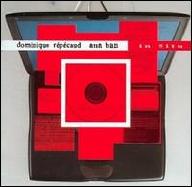Répécaud put his first rock group together in 1967, at the age of 12. He chose to play the guitar because it is the instrument of all true rock legends. He learned by himself. He spent most of the 1970s playing in CCB, a group that left no recordings. During that period he listens more than he plays. The live shows of King Crimson, Magma, Can, and Henry Cow planted in his mind a conception of what free rock could be. Together with Jean-François Nodot he formed Soixante Étages in 1983 to explore this conception. Jacques Debout, Daniel Koskowitz, and François Dietz are among the regular participants to this collective. The group rehearsed in the basement of the Centre Culturel André Malraux (CCAM) in Nancy. Répécaud immediately joins a group of avant-garde music enthusiasts that are developing a program of "new music" concerts for the center. The first Musique Action festival (at first named Musique Action International or MAI, for the month of May) took place in May that year. Répécaud got a job at the center in 1986 where he still works.
Ignoring a few home-made tapes, the group's first album was the 1990 LP Heatproof Cauldrons for Wanglers. Its release marked the inception of the label 33revpermi, still active today. Soixante Étages remained intermittently active until the end of the 1990s, at which point the unit Étage 34 (Répécaud, Koskowitz, and Olivier Paquotte), launched in 1993, took over. Spin-off groups and collaborations multiplied, including Idiome 1238 and the trio Le Complexe de la Viande (with poet Serge Pey and theremin virtuoso Laurent Dailleau). Meanwhile the guitarist got involved in outside projects, performing on albums by Pascal Comelade, Dominique Regef, and Dominique Grimaud and playing free improv in the guitar quartet Misère et Cordes. He released his first solo CD Ana Ban, a collection of duets, in 2000. ~ François Couture, Rovi












